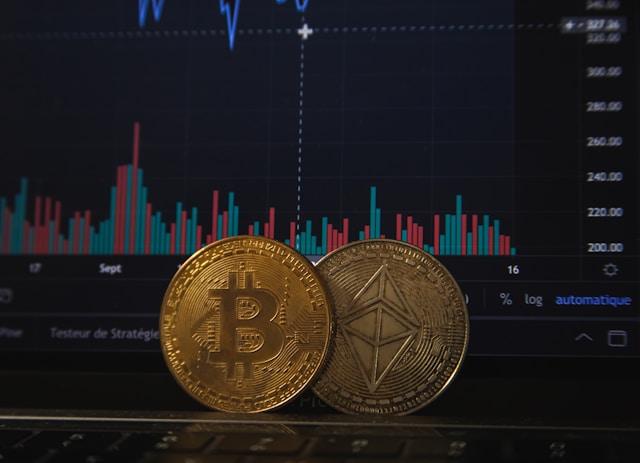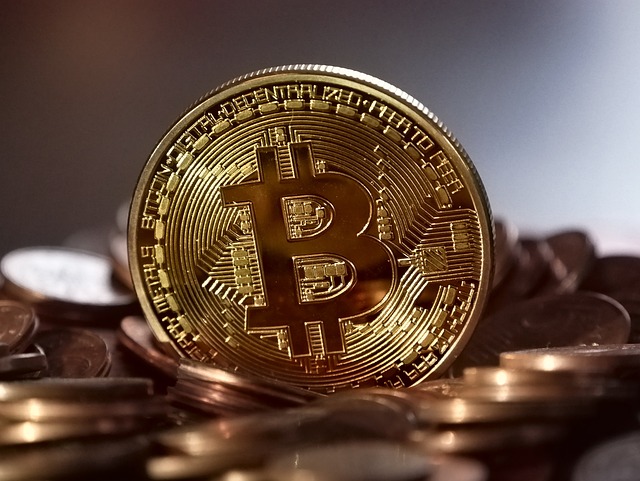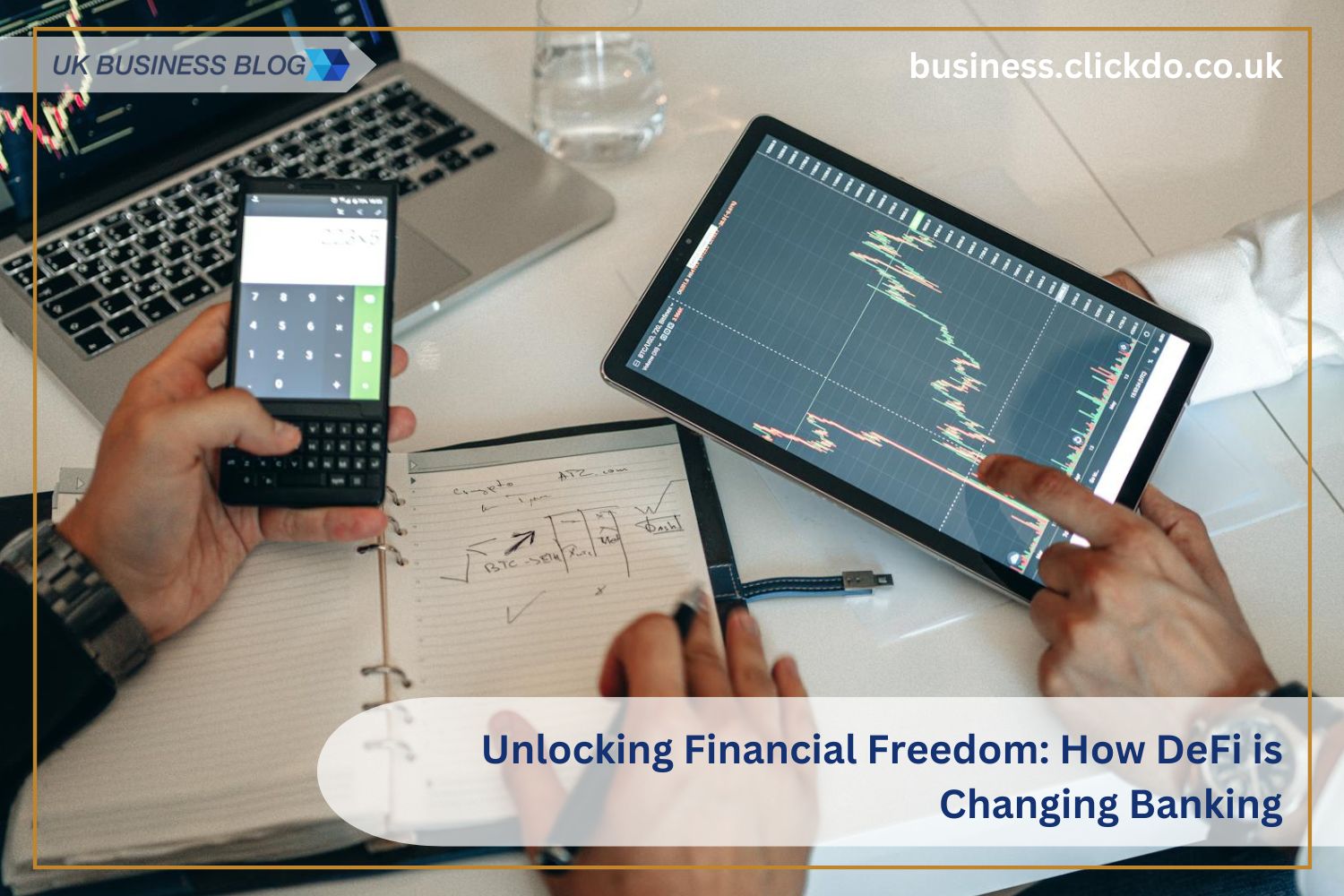Table of Contents
Decentralized Finance (DeFi) is revolutionizing the traditional banking sector, offering individuals unprecedented control over their finances. Unlike traditional banks that operate under centralized authorities, DeFi platforms leverage blockchain technology to enable decentralized, peer-to-peer financial transactions.
This article explores how DeFi is transforming banking and empowering individuals with financial freedom. One such site that you can rely on is immediate-edge.co an example of a platform that exemplifies the principles of DeFi, providing users with direct access to financial services without the need for intermediaries.
The Evolution of Banking

Traditional banking has long been characterized by centralization, where financial institutions act as intermediaries in financial transactions. However, this centralized model has several limitations, including restricted access to financial services, lack of transparency, and limited control over funds.
In contrast, DeFi operates on decentralized networks, allowing users to access financial services directly without the need for intermediaries.
Understanding DeFi
DeFi refers to a range of financial services and applications built on blockchain technology. These platforms eliminate the need for traditional intermediaries, such as banks, by using smart contracts to execute transactions automatically. DeFi offers users greater transparency, accessibility, and control over their finances compared to traditional banking systems.
Benefits of DeFi
1. Financial Inclusion: One of the key benefits of DeFi is its ability to provide financial services to individuals who are unbanked or underbanked. Through DeFi platforms, anyone with an internet connection can access a range of financial services, including lending, borrowing, and trading.
2. Security: DeFi platforms offer enhanced security through the use of blockchain technology. Transactions are recorded on a decentralized ledger, making them immutable and resistant to fraud or tampering.
3. Transparency: DeFi platforms provide transparency by allowing users to view all transactions on the blockchain. This transparency enhances trust among users and reduces the risk of fraudulent activities.
4. Accessibility: DeFi is accessible to anyone with an internet connection, making it particularly beneficial for individuals in regions with limited access to traditional banking services.
Examples of DeFi Applications

1. Lending Platforms: DeFi lending platforms allow users to lend or borrow digital assets without the need for a traditional financial intermediary. Users can earn interest by lending their assets or borrowing assets for various purposes.
2. Decentralized Exchanges (DEXs): DEXs allow users to trade digital assets directly with one another without the need for a centralized exchange. These platforms enable fast and secure trading while maintaining user privacy.
3. Yield Farming Protocols: Yield farming involves using DeFi protocols to earn rewards by providing liquidity to decentralized exchanges or lending platforms. Users can earn rewards in the form of additional tokens by participating in yield farming.
Challenges and Risks
While DeFi offers numerous benefits, it also presents several challenges and risks. Smart contract vulnerabilities, regulatory uncertainty, and market volatility are some of the key challenges facing the DeFi ecosystem.
Additionally, the lack of a centralized authority to oversee DeFi platforms can lead to potential security breaches and financial losses for users.
The Future of Banking: DeFi’s Impact

The rise of DeFi is reshaping the future of banking by offering an alternative financial system that is more accessible, transparent, and inclusive. Traditional banks are increasingly recognizing the potential of DeFi and exploring ways to integrate decentralized finance into their existing infrastructure. Collaboration between traditional banks and DeFi platforms could lead to a more efficient and inclusive financial system.
Conclusion
In conclusion, DeFi is revolutionizing the banking sector by offering individuals greater control over their finances. With its emphasis on decentralization, transparency, and accessibility, DeFi has the potential to democratize finance and unlock financial freedom for people around the world. As the DeFi ecosystem continues to evolve, users need to understand the risks and benefits associated with these platforms to make informed financial decisions for investments and more.
Author Profile
- Blogger and Educator by Passion | Senior Online Media & PR Strategist at ClickDo Ltd. | Contributor to many Education, Business & Lifestyle Blogs in the United Kingdom & Germany | Summer Course Student at the London School of Journalism and Course Instructor at the SeekaHost University.
Latest entries
 BusinessFebruary 1, 2026Why Modern Warehouse Management is the Secret to UK Retail Growth
BusinessFebruary 1, 2026Why Modern Warehouse Management is the Secret to UK Retail Growth BusinessDecember 2, 2025How to Build an Effective Progression Plan in Your Company
BusinessDecember 2, 2025How to Build an Effective Progression Plan in Your Company BusinessOctober 24, 2025Legionella Risk Assessment: 5 Things Every Entrepreneur Needs to Know
BusinessOctober 24, 2025Legionella Risk Assessment: 5 Things Every Entrepreneur Needs to Know EmploymentSeptember 2, 2025Why Motorbike Accident Staff Claims are a Growing Business Risk
EmploymentSeptember 2, 2025Why Motorbike Accident Staff Claims are a Growing Business Risk





